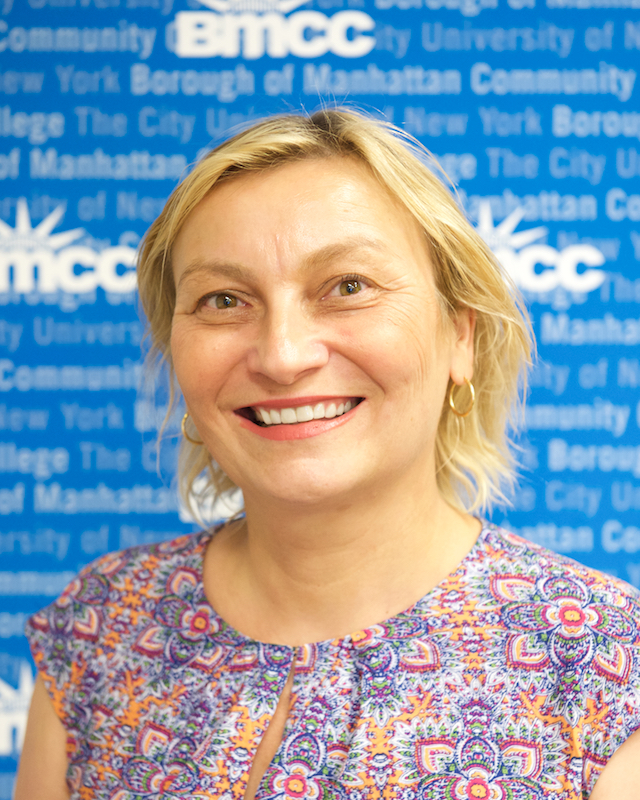Gabriella Morvay

Associate Professor
Academic Literacy and Linguistics
EMAIL: gmorvay@bmcc.cuny.edu
Office: N-499B
Office Hours:
Phone: +1 (212) 220-1408
Expertise
Theoretical Linguistics: Lexical Semantics; Social Semiotics; Linguistic theories of humor; Bilingualism;
Degrees
- Mgr. College of Education, Nitra, Slovakia, Teaching English and Hungarian Language and Literature,1992
- M.A. Teachers College, Columbia University, Teaching English to Speakers of Other Languages,1995
- PhD. The Graduate Center, CUNY, Linguistics,2009
Courses Taught
- This course will introduce the student to the study of Language and Culture. The course will introduce related topics, such as bilingual/bidialectal families and bilingual education, language and gender, literacy in a changing, technological society, child language acquisition, and different dialects and registers of English. The readings will draw on works in linguistics, literature and related fields. Students will work on critical reading and produce writing based on the readings in connections with their own experiences and backgrounds.
- This course will introduce students to linguistics, the scientific study of language. Students will apply methods of scientific inquiry (including the scientific method) to linguistic systems (phonological, morphological, syntactic, semantic, and pragmatic) and language phenomena and events. Specifically, students will engage in observation of linguistic phenomena, collection of data, generation and testing of hypotheses, analysis of and interpretations of data, application and evaluation of theory, in order to form conclusions about linguistic phenomena.
- This advanced level course emphasizes writing and reading skills; however, oral skills are not neglected. In writing, students focus on introducing, developing, supporting, and organizing their ideas in expository essays as well as in narrative and descriptive writing.
- This intensive writing course for ESL students focuses on basic components of effective writing, including paragraph development and structure, sentence structure, word choice, and content. Students read and respond to a variety of texts and use argumentation, narrative, and description as modes of developing ideas in writing.
Research and Projects
Publications
- Morvay, G. & Sepp, M.(2013) Measuring Productive Vocabulary in English Language Learners,Journal of Linguistics and Language Teaching
- The relationship between Syntactic Knowledge and Reading Comprehension in EFL Learners,Studies in Second Language Learning and Teaching
- Sepp, M. & Morvay, G. (2012): Productive Vocabulary, Morphosyntactic Knowledge, Reading Ability, and ESL Writing Success ,Iranian Journal of TEFLL
- The role of L1 reading ability, L2 proficiency and non-verbal intelligence in L2 reading comprehension,Argentinian Journal of Applied Linguistics 26-47
- https://urldefense.proofpoint.com/v2/url?u=http-3A__bit.ly_english-2Dhumor&d=DwMGaQ&c=nI61yajbN8Wpmagq-MfhuN08S0yyNTfdgIcL-uZdBfM&r=7PN8n4DgVO8Ym58o3lbG8DWITlqsCPlRe-IXJ7EVjJk&m=ZsDZrcVYuTJyFifrw986j1YiKRMgTcr2P_8i1yVXCjc&s=t9tWi-zh7fhzhIlQi0Kg7HsVcX4yOTlkL-pdCg98BNw&e=
Honors, Awards and Affiliations
- Fulbright scholar 1993/94
- BMCC Faculty Development Award, 2011
- Scholar-in-residence, New York University, 2018/19

